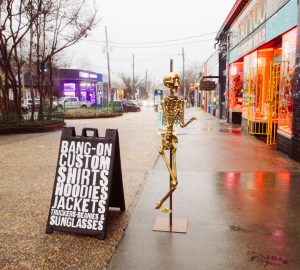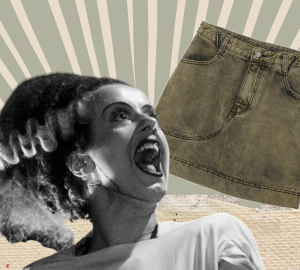Five reasons why ‘The Assassination of Gianni Versace’ is so compelling
by Maggie Schneider

I’m hooked on television crime series, and I’m not ashamed to admit it. I shamelessly analyze each crime and its evidence as if I’m a qualified crime scene investigator. I love the suspense created in the courtroom as a wise-looking actor playing a judge announces the fate of the allegedly guilty party. And, of course, I enjoy seeing justice being served.
Unfortunately, most of crime shows coming out these days are rather one dimensional as they combine flat, stereotypical characters with bleak plotlines and dull set design. Thankfully, “American Crime Story” kicked off in 2016 with “The People v. O.J. Simpson,” giving audiences a refreshing new take on crime television. This season of “American Crime Story” focuses on Gianni Versace’s murder. It dives into the minds and personal lives of Andrew Cunanan (played by the exceptional actor Darren Criss), Donatella and Gianni Versace, and many others involved in Cunanan’s murder spree.
If you haven’t begun watching the show yet, let me persuade you. Here are five reasons why “The Assassination of Gianni Versace” is so compelling:

It highlights the complexities of each of its characters
This season of “American Crime Story” explores the psychology of the characters on screen, and allows the viewers to actually feel empathy for Cunanan. How is this possible? How could viewers actually relate and feel sympathetic towards a murderer? It’s because the show highlights Cunanan’s childhood and adolescence, which were full of pitfalls and chaos. Viewers also have a look at the Cunanan family as a whole, and the complex relationships between his mother, father and siblings.
It makes a commentary on the social climate of the 1990s
This show delves into the social climate of the 1990s, particularly the HIV/AIDS epidemic and the LGBTQ community. It emphasizes the turmoil that gay men in America faced in this decade, as well as the nightlife that accepted them and made them feel at home. On the opposite end of the spectrum, the show focuses on Versace’s AIDS diagnosis, as well as his longtime partner Antonio D’Amico. It shows how much America has changed within the past two decades, while also (and unfortunately) focusing on how it has remained the same. I definitely think that executive producer Ryan Murphy’s making important social commentary here.
The production design draws you into the world
I am a huge fan of the set design in all of Murphy’s productions, but this one has to be my favorite. The sets and locations take the viewers on journeys to Miami, Minnesota, Chicago and New Jersey. The production filmed many of its scenes at Casa Casuarina, the Miami mansion where Gianni Versace lived for most of his life. It’s also where Versace was assassinated. The beautiful site juxtaposes the turmoil of Donatella and D’Amico as well as the complete chaos that Cunanan created.
It thoroughly illustrates Gianni Versace’s love of fashion and feminism
The show captures the special relationship between Gianni and his sister Donatella, who later takes on the role as the chief designer of his brand. After being diagnosed with AIDS, Gianni began teaching Donatella how to design clothes, and put her in the spotlight long before his death. His passion for creating clothes for all women shines through the entire series, and his support of Donatella is special. The theme of feminism is stronger than the more dramatic moments of the season.
It tells a real story
While FX admits that many of the scenes between the characters (private conversations, etc.) are fictionalized, the majority of the series is based on the actual evidence and events that took place during this time. Cunanan’s murders are visualized exactly how they happened, and details about Versace’s life ring true. I am fascinating by stories about real people, and when the series ended, I felt like I understood the social climate, characters and the horrible murders that occurred. This story emphasizes the fragility of life, and how important it is to live and love to the fullest extent each and every day.






















